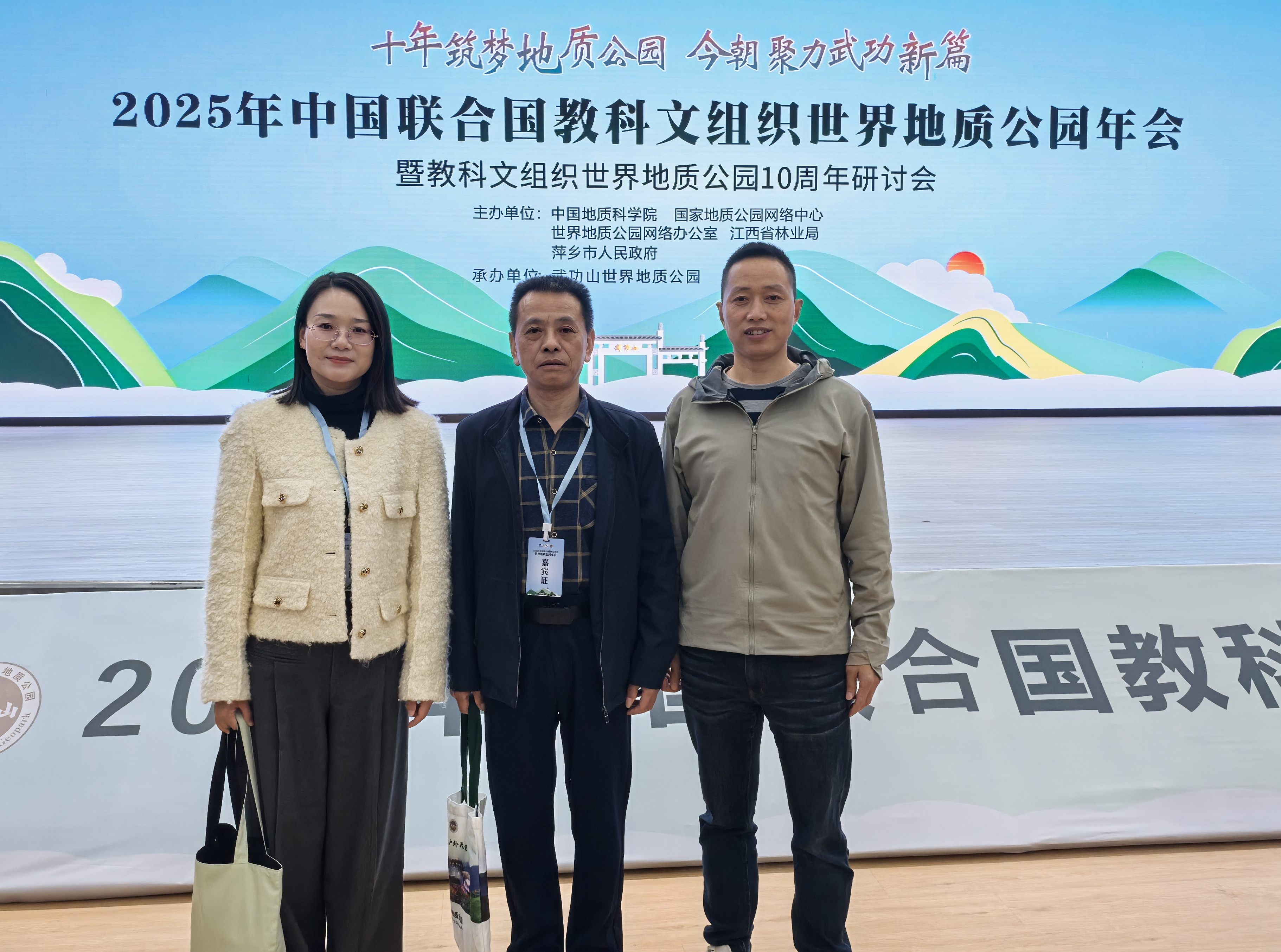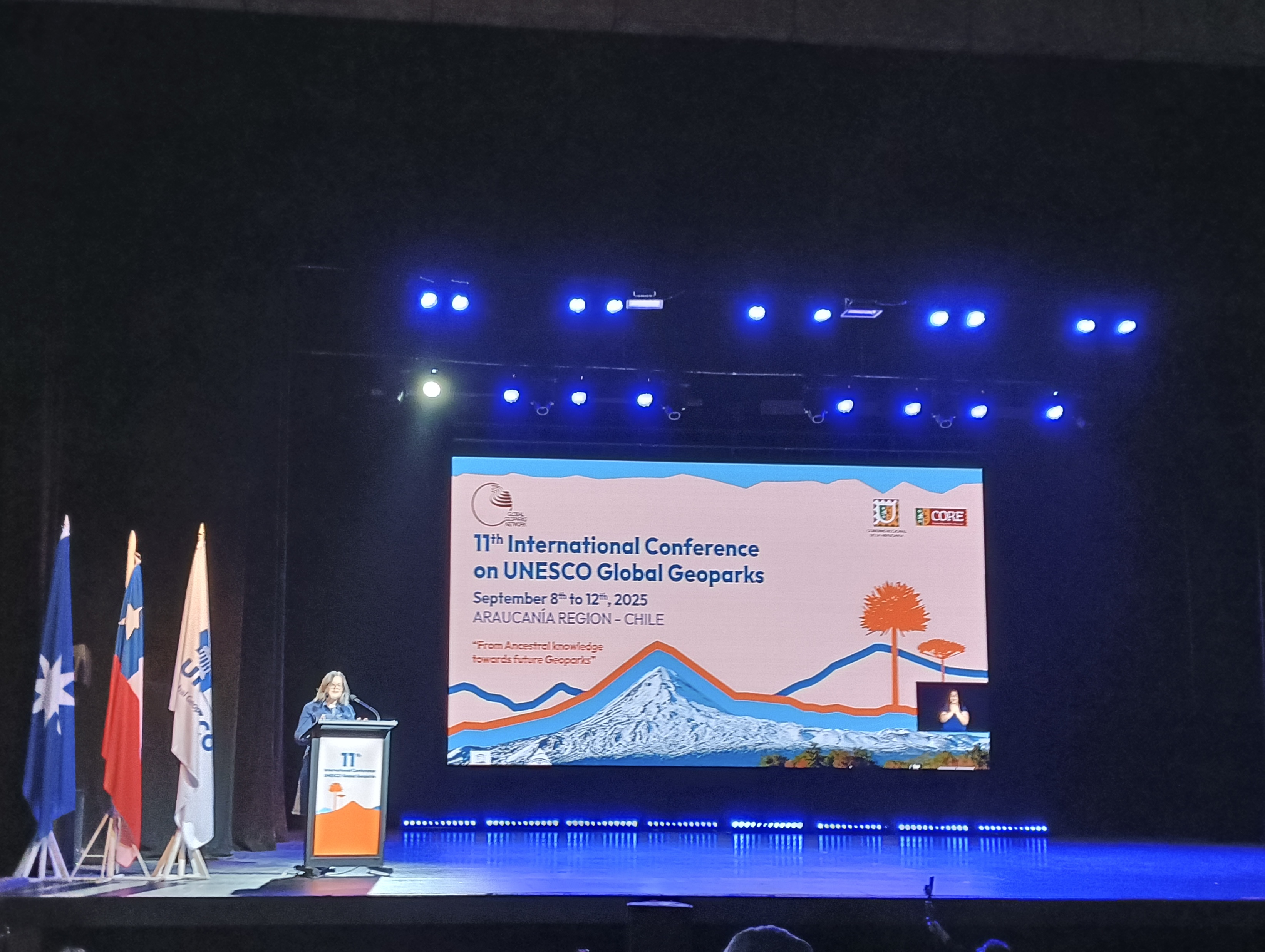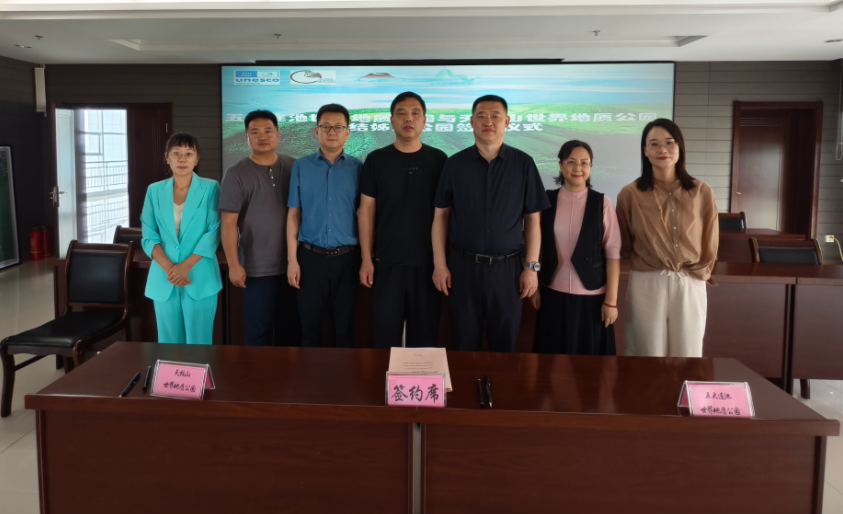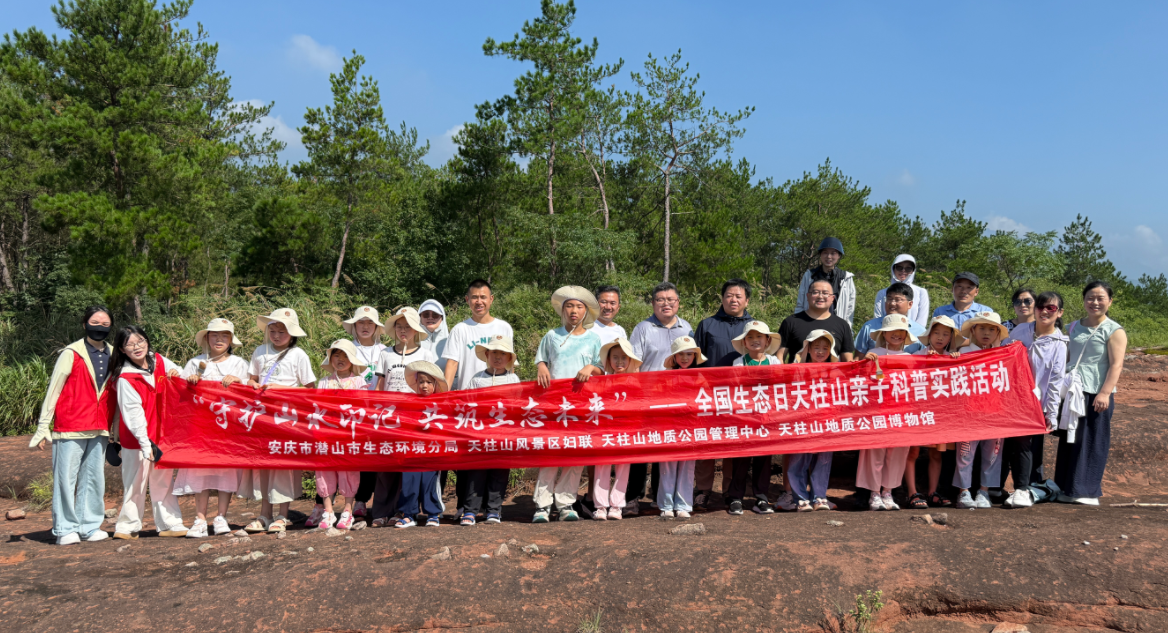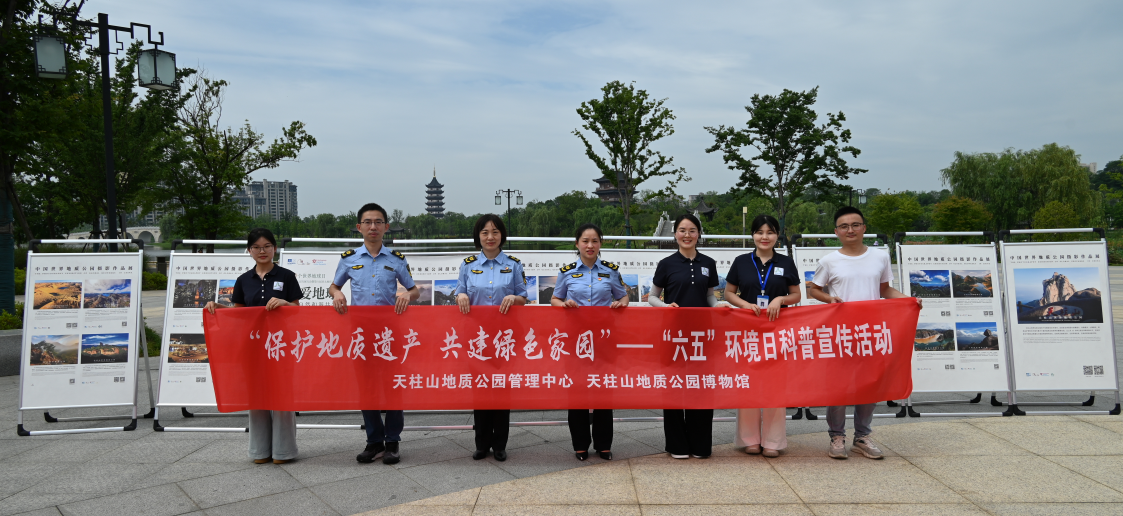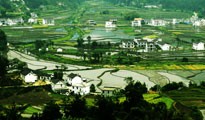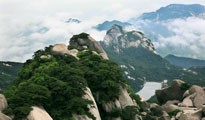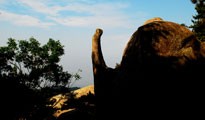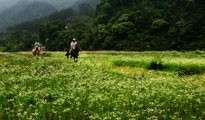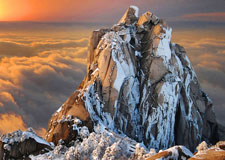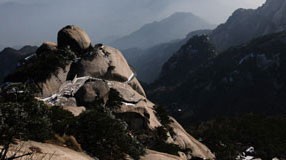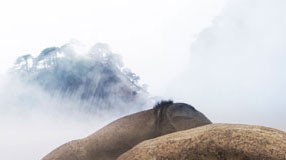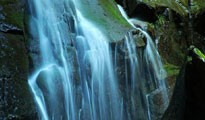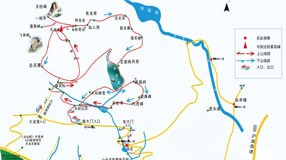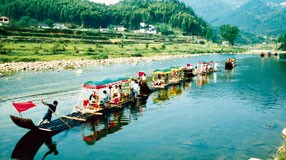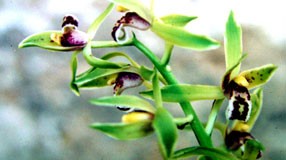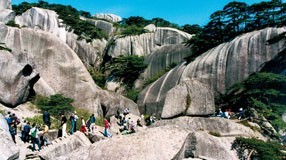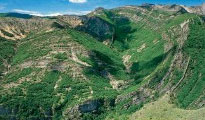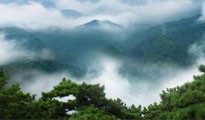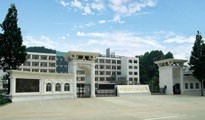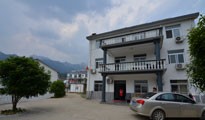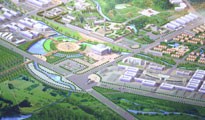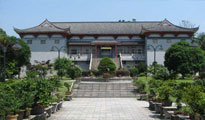Yangxiaowu
fossil site is located in Wangfan Group, Qiuzhi Village, Doumu Town. In the
upper Doumu Formation, fossils from the late Palaeocene (about 60 million years
ago) have been found. Currently, the exposed red clastic rocks are about 27000㎡ in area. Since 1970,
researchers from the Palaeovertebrates and Paleoanthropology Institute of CAS
(Chinese Academy of Sciences), the local department of cultural relics and the Geological Department of Qianshan County have collected hundreds
of fossil specimens here, such as, Heomys orientalis, Mimotona wana,
Sinostylops promissus, Archaeolambda tabiensis, Hsiuannania tabiensis,
Wanshuina lii, Anhuichelys tsienshanensis, etc. It is a site situated in the
largest exposed red sandstones in Qianshan Basin and most of the fossils were
found here.
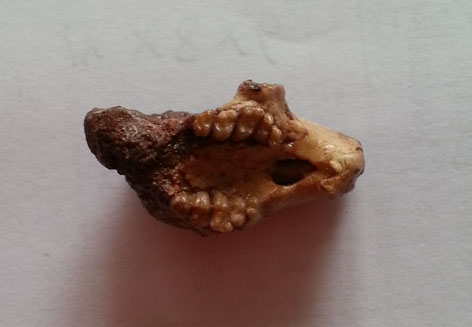

Heomys
orientalis: Heomys orientalis is the ancestor of rodents such as mice or rats. It is called Heomys orientalis because the finding of the fossil
casts new light on the origin of rodents in the world.
.jpg)
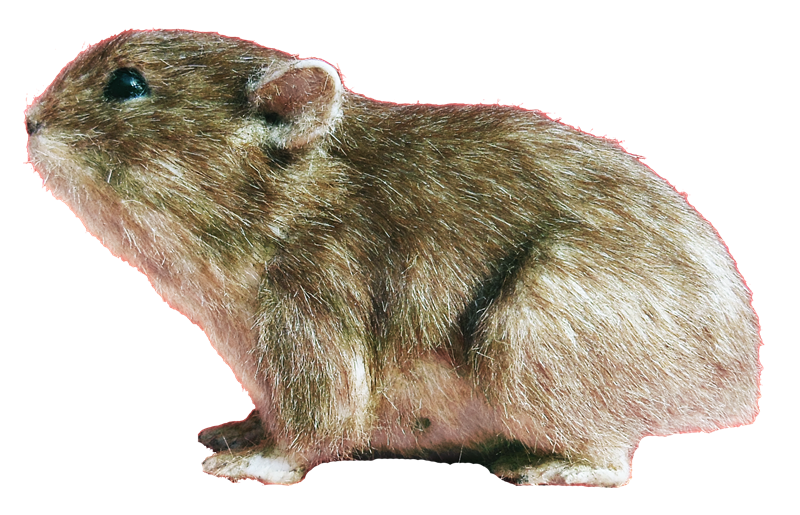
Mimotona wana:
Ancestor of Lagomorphs (Rabbit).
According to
research, Mimotona wana and Heomys orientalis are ancestors of rats and rabbits respectively, and the excavation of their fossils has provided reliable
evidence for their origin, as well as confirming the hypothesis that they share
the same evolutionary root. Both rats and rabbits originated from Asia, specifically
the Qianshan area.
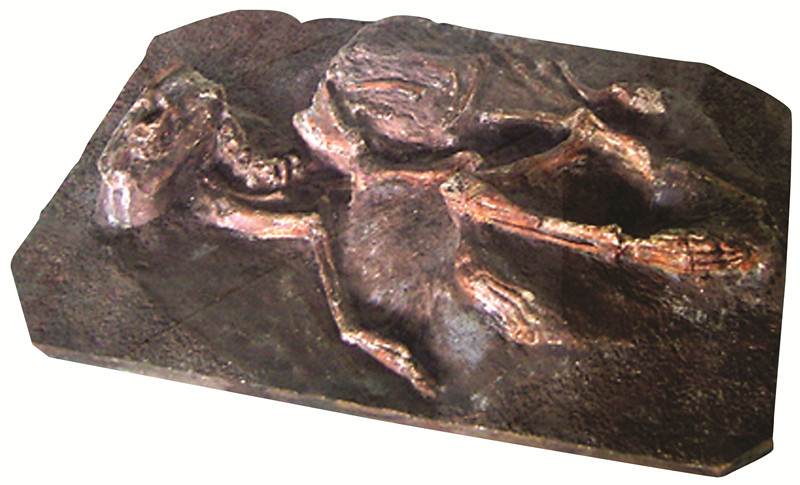
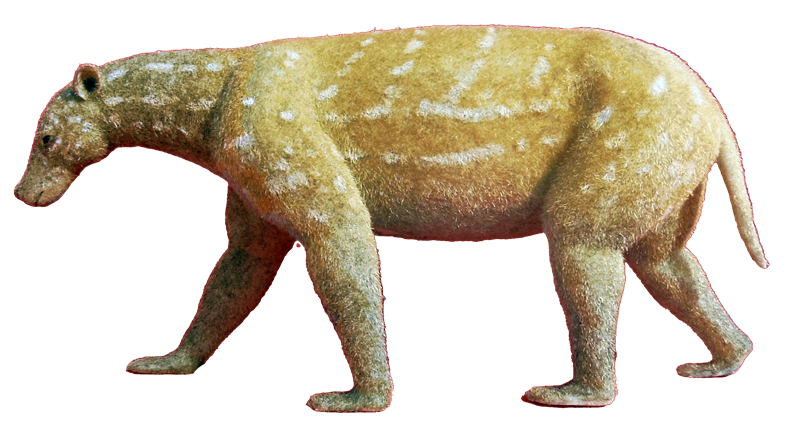
Archaeolambda
tabiensis: As a unique group of mammals found in Asia, Archaeolambda tabiensis
is a typical example of ancient ungulates.
Ungulata
includes many categories of large mammals, such as horses, cattle, pigs,
giraffes, camels, deer and so on. They walk or run on their front toes.
.jpg)
Wanshuina lii,
as one of the unusual species of Palaeocene birds, is the only Palaeocene
representative of the crane.
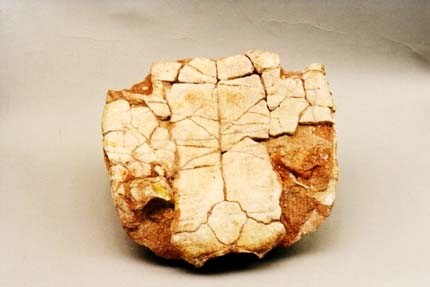
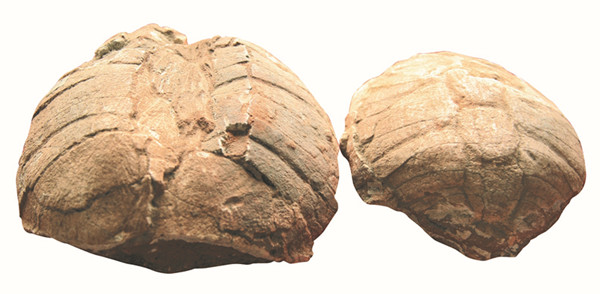
Anhuichelys
tsienshanensis: Anhuichelys tsienshanensis has been identified as a new species
of turtle and was named by the paleontologist Xiangkui Ye. The finding of the
fossils has filled the gap in our early research on turtle fossils from the Palaeocene
era.

















